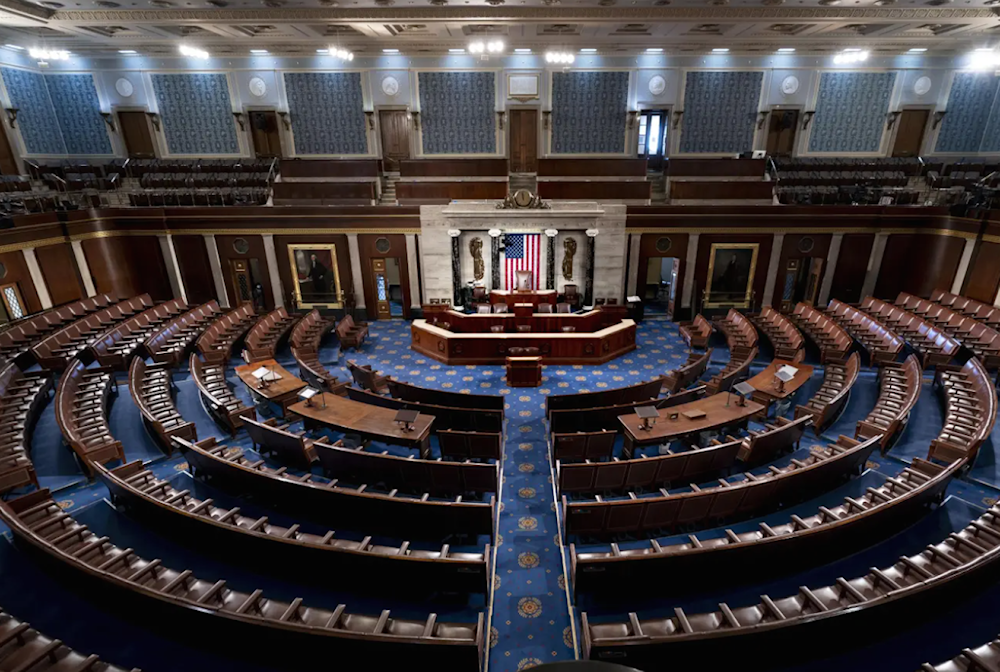US House passes Republican bill to fund government
The US House passed a Republican-backed funding bill to avert a government shutdown while cutting non-defense spending.
-

The chamber of the House of Representatives is seen at the Capitol in Washington on February 28, 2022. (AP)
The US House of Representatives on Tuesday passed a temporary package sponsored by Republican members to finance the federal government until September 30 and avert a shutdown.
The GOP measure was carried with a majority vote.
According to Republicans, the plan will fund vital government functions without increasing federal expenditure. At the same time, the measure cuts non-defense expenditure by $13 billion while allocating $485 million to Immigration and Customs Enforcement to increase deportation rates.
The Democrats had previously expressed concern over significant budget cutbacks in the measure, as well as a lack of financing mandates for specific programs and objectives.
US stock market loses $4 trillion as Trump presses on with tariffs
US President Donald Trump's tariffs have unsettled investors, sparking fears of an economic slowdown and triggering a stock market sell-off that has erased $4 trillion from the S&P 500's peak last month, when Wall Street had largely supported his agenda.
A series of new Trump policies have heightened uncertainty for businesses, consumers, and investors, particularly with the ongoing back-and-forth tariff disputes with key trading partners such as Canada, Mexico, and China.
"We've seen clearly a big sentiment shift," said Ayako Yoshioka, senior investment strategist at Wealth Enhancement. "A lot of what has worked is not working now."
The stock market sell-off intensified on Monday, with the benchmark S&P 500 falling 2.7%, marking its biggest daily drop of the year. The Nasdaq Composite slid 4%, its largest one-day decline since September 2022.
By Monday's close, the S&P 500 was down 8.6% from its February 19 record high, losing over $4 trillion in market value and approaching a 10% decline, which would signal a correction. The Nasdaq, dominated by tech stocks, ended Thursday more than 10% below its December high.
Over the weekend, Trump refrained from predicting whether the US would enter a recession, as concerns grew over the effects of his trade policies.
"The amount of uncertainty that has been created by the tariff wars with regard to Canada, Mexico, and Europe, is causing boards and C-suites to reconsider the pathway forward," Peter Orszag, CEO of Lazard, speaking at the CERAWeek conference in Houston.
"People can understand ongoing tensions with China, but the Canada, Mexico, and Europe part is confusing. Unless that gets resolved over the next month or so, this could do real damage to the economic prospects of the US and M&A activity," Orszag said.

 3 Min Read
3 Min Read








